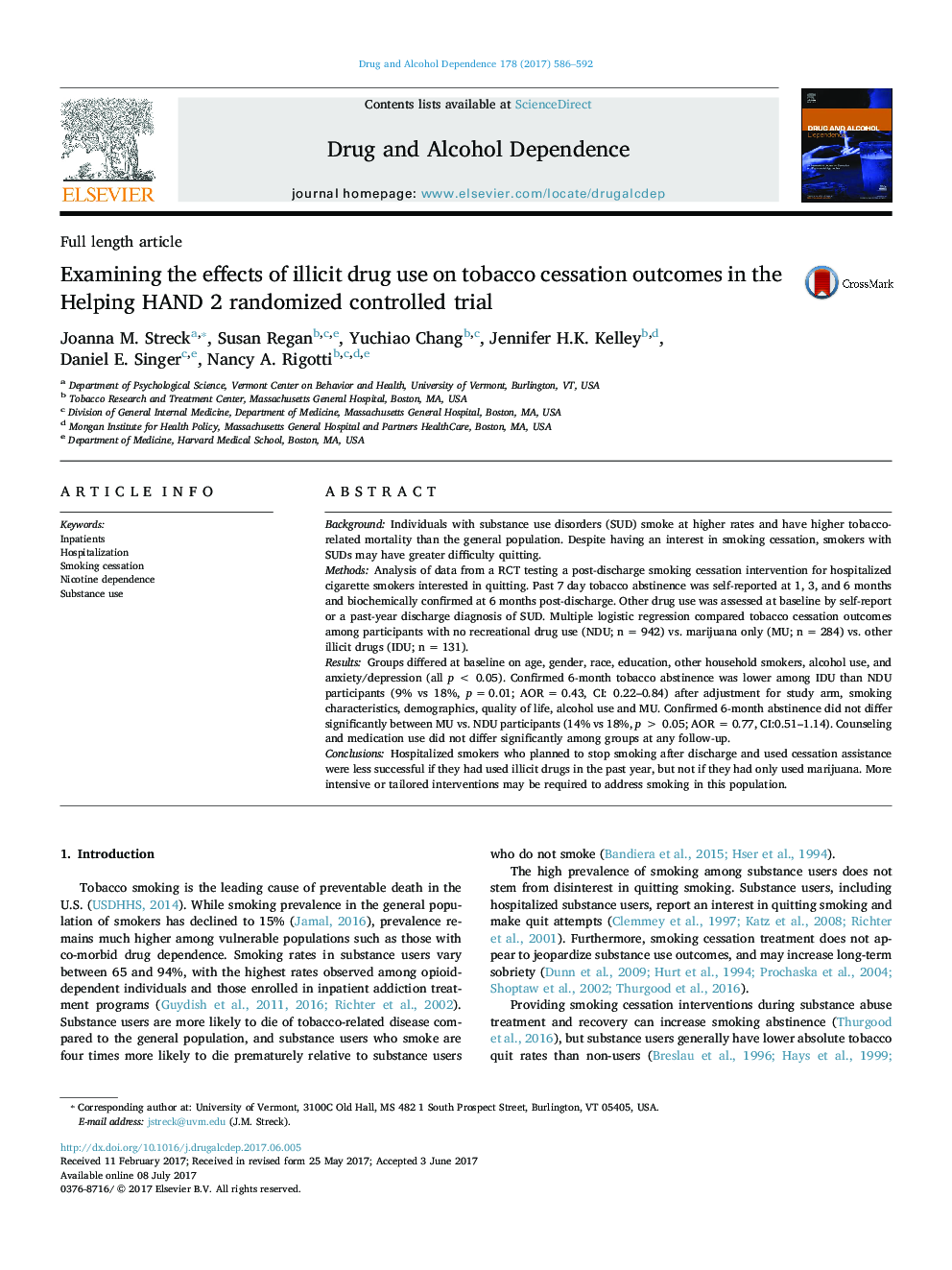| کد مقاله | کد نشریه | سال انتشار | مقاله انگلیسی | نسخه تمام متن |
|---|---|---|---|---|
| 5120390 | 1486113 | 2017 | 7 صفحه PDF | دانلود رایگان |

- Hospitalized smokers trying to quit had less success if they used illicit drugs.
- Marijuana-only use did not worsen success compared to no-drug use.
- Tobacco treatment use was comparable among past-year drug use groups.
BackgroundIndividuals with substance use disorders (SUD) smoke at higher rates and have higher tobacco-related mortality than the general population. Despite having an interest in smoking cessation, smokers with SUDs may have greater difficulty quitting.MethodsAnalysis of data from a RCT testing a post-discharge smoking cessation intervention for hospitalized cigarette smokers interested in quitting. Past 7 day tobacco abstinence was self-reported at 1, 3, and 6 months and biochemically confirmed at 6 months post-discharge. Other drug use was assessed at baseline by self-report or a past-year discharge diagnosis of SUD. Multiple logistic regression compared tobacco cessation outcomes among participants with no recreational drug use (NDU; n = 942) vs. marijuana only (MU; n = 284) vs. other illicit drugs (IDU; n = 131).ResultsGroups differed at baseline on age, gender, race, education, other household smokers, alcohol use, and anxiety/depression (all p < 0.05). Confirmed 6-month tobacco abstinence was lower among IDU than NDU participants (9% vs 18%, p = 0.01; AOR = 0.43, CI: 0.22-0.84) after adjustment for study arm, smoking characteristics, demographics, quality of life, alcohol use and MU. Confirmed 6-month abstinence did not differ significantly between MU vs. NDU participants (14% vs 18%, p > 0.05; AOR = 0.77, CI:0.51-1.14). Counseling and medication use did not differ significantly among groups at any follow-up.ConclusionsHospitalized smokers who planned to stop smoking after discharge and used cessation assistance were less successful if they had used illicit drugs in the past year, but not if they had only used marijuana. More intensive or tailored interventions may be required to address smoking in this population.
Journal: Drug and Alcohol Dependence - Volume 178, 1 September 2017, Pages 586-592